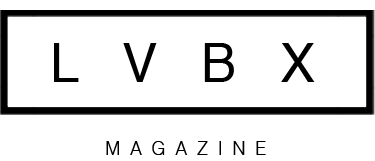
THE HOLISTIC CONVERSATION with Tisha Morris
I’ve spent years helping people let go of stuff, along with my own, and have heard every excuse you could imagine for holding onto certain items. What I’ve noticed is that most people don’t have a problem decluttering en masse, but there are inevitability certain items we hold on to that keep us stuck. And, by stuck, I mean preventing us from living the life we want to be living.
Why do we do this? And how do we know what items are tethering us to people, places, and things from our past that we’d rather not be reliving?
To understand this, we need to go back a bit.
At around two-years old, we begin to realize we are separate beings – separate from our caregivers and separate from things. This is the beginning of our identity formation, or individuation, and we do this through our possessions.
“This is mine. Mine. Mine. Mine.”
A child begins to find his or her individual expression, or identity formation, through his or her preferences. “I want this doll.” “I want this green truck.” Of course, this is also the beginning of parental and societal influences on who we should be in the world and therefore what items we should possess.
Our innate desire towards possessing things for individuation doesn’t stop in childhood. Our things have always been and will continue to be an integral way of expressing our identity in the world.
“I prefer the rose gold iPhone.”
Translation: I’m elegant and appreciate design.
“I prefer the black Samsung phone.”
Translation: I’m smart and don’t fall for fluff.
Possessing, owning, liking, desiring, or buying things is not the problem. The problem comes when we outgrow certain identities, but keep holding onto those items representing the old identity.
Around adolescence we encounter our first of many identity crises. Who are we separate from our family? This happens again as we approach age 30. In astrology, this is known as your Saturn Return. And then, just a decade later, life gives you another chance: mid-life crisis. Our identity is up for review during these key phases and also during transitional times, such as a job loss, career change, divorce, death of a loved one, or a major move.
The problem comes when we don’t completely shed the old identity to make room for the inevitable new one. And since our identity is reflected through our stuff, we hang on to those items that represent the past identities.
The past not only remains present, but also piles up. This can lead to stagnation, confusion, emotional claustrophobia, regret, lack of direction, weight gain, and depression.
Here are a few of the common identities we tend to hold on to.
Past Jobs and Careers
Understandably so, we form strong identities around our work in the world. But what about when we change jobs or careers? It took me years after practicing law before I finally let go of my last business suit.
Even though I had no desire to practice law or, for that matter, wear business clothes ever again, that last business suit still hung in my closet: Pin-striped from Banana Republic. My cover excuse was “just in case” I need a business suit one day.
The “just-in-case” excuse is a mental trick for holding on to an old identity. Why was I holding on to an identity that I didn’t even identify with? Turns out, I was getting a lot more out of it than I realized. Being an attorney was an aspect of myself that was solid, legitimate, smart, provided well, and, most importantly, positively acknowledged by my family.
Past Relationships
Our identity through relationships runs deep and can be difficult to move on from.
When we go through a break-up or divorce, we have no idea who we are. This is often the impetus of what’s known as the dark night of the soul and also why most people try to avoid this identity crisis by staying in a dead end relationship or quickly move into a new one.
Getting rid of items related to that past relationship can feel like a ripping apart of one’s own flesh. The items represent the relationship and the relationship holds the only sense of who you are in the world.
As you establish a new identity, you are able to let go of items associated with the past relationship to create space for the new. This can take months or years, in tandem with grieving the relationship.
Past Associations and Accomplishments
Our identity can also get stuck around the glory days, such as captain of the football team, PTO president, Homecoming Queen, being a mother, or even Best Salesman – 1998. These are usually viewed as positive times in our life. And although fleeting moments, we try to hold on to them and make the past present.
What items represent these times for you? I had one client who held onto a broken ice cream maker for years. Her cover excuse was that it could be repaired, but really she was keeping it because of her identity around being a mom with young children even though they were now grown.
Positive memorabilia certainly has value. But if you are viewing these times as the best days of your life and you’re under the age of 99, then consider lightening your load of items related to past identities that are no longer relevant to your current life. There is a fine line between nostalgia and living in the past.
As you continue to grow and expand, life will only get better and better with each past identity and experience being either a positive reinforcement or a growing pain from which to launch you further. You will become a higher vibration to even better things and life will be more enriching than your wildest dreams or even your best past memory.
Let go or be dragged. – Zen Proverb
Tisha Morris is the best-selling author of Decorating With the Five Elements of Feng Shui (Llewellyn 2015), Mind Body Home: Transform Your Life One Room at a Time (Llewellyn 2012), Feng Shui Your Life: The Quick Guide to DeclutteringYour Home and Renewing Your Life (Turner Publishing 2010). Tisha is based in Los Angeles where she works with homes and business and facilitates trainings. To learn more, visit Earth Home with Tisha Morris.










